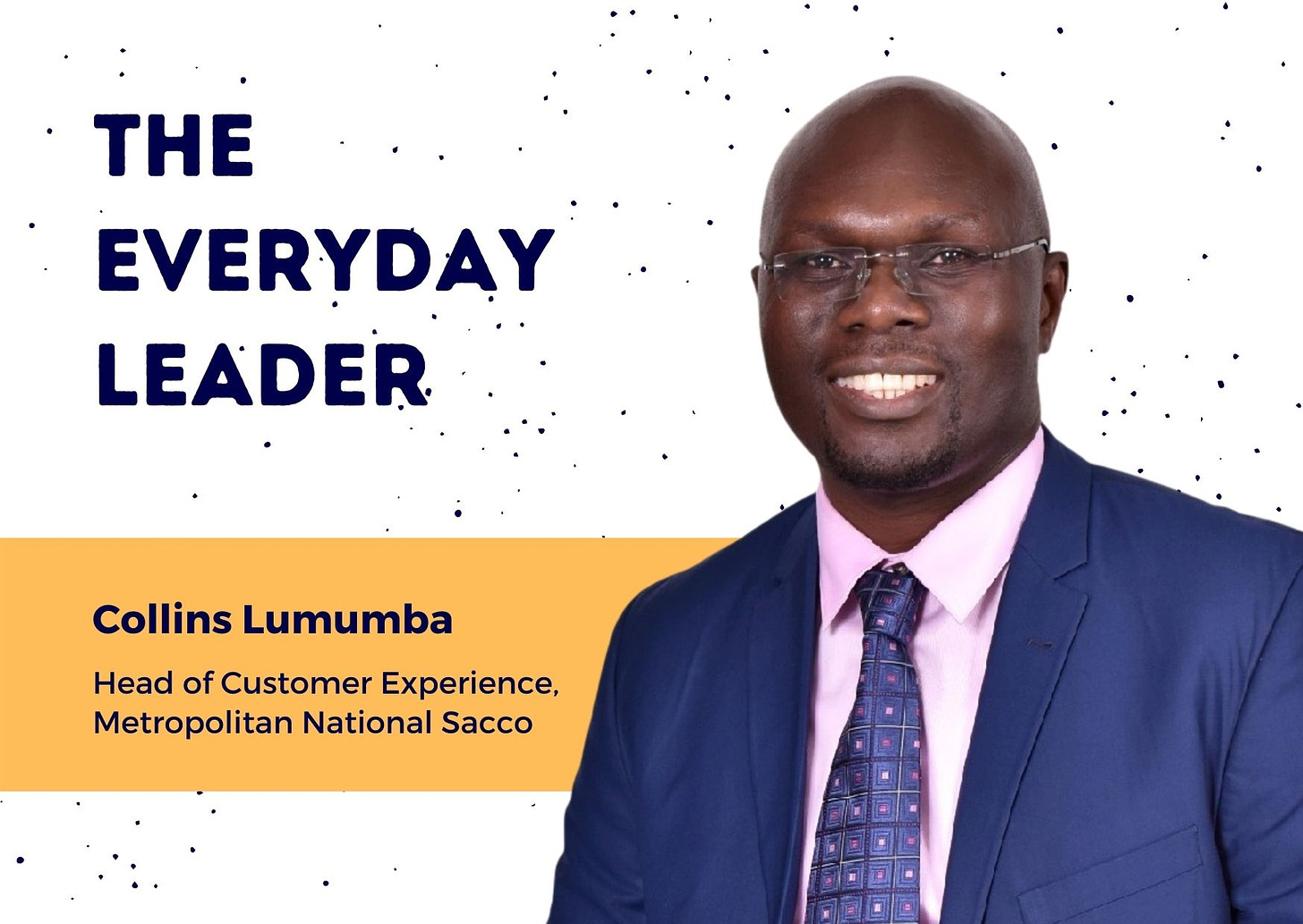Hi everyone, here’s what we have for you this week:
Can you lead without followers? In this week’s episode of The Everyday Leader, we hear from Collins Lumumba from Kenya on the mistakes he made during his first experience as a manager.
It’s not too late to set (or reset) your team’s OKRs. We share 3 leadership tips from managers at companies in Africa for how to roll out OKRs with your team the right way.
A coaching approach to management is a skill that takes practice. Join CoffeeChat’s peer coaching network to get matched with a fellow manager each month for a two-way peer coaching conversation.
Read on for more details…
The difference between a boss and a leader, staying resilient during times of rapid sector transformation and being proactive about continuous professional development
Here are a few highlights from the conversation with Collins:
You can’t lead without followers: When Collins first stepped in a manager role, he thought he could assert himself in a way that he thought a boss could act. His overbearing attitude was not appreciated by his team, who ended up delivering on his assignments but causing the culture to diminish and innovation to disappear. Eventually he realized his errors and sought out leadership best practices to improve his leadership style. One learning during that time that he still practices today is ensuring that new team members are well supported during their first month and enter the team with a clear sense of how they will contribute and grow as a professional within the company.
In the face of rapid sector transformation, staff retention becomes even more important: In recent years, traditional financial institutions have faced pressure from new fintech solutions. Collins has found that its been increasingly important to do his best in developing and rewarding high-performing talent in order to ensure solid execution of strategies to remain competitive, as well as retaining critical staff.
Leadership requires proactive and continuous professional development: Collins has sought out a number of ways to improve his leadership skills over the years. Two recent initiatives include Toastmasters and CoffeeChat. With Toastmasters, he is able to practice public speaking. With CoffeeChat, he is able to practice coaching and also receive coaching from other managers through the Peer Coaching Network. He has adopted the GROW Model used in peer coaching, which he has even brought to some of his team members to apply in their own day-to-day decision making.
Setting Strategy Through OKRs
Objectives and Key Results (OKRs) are a goal-setting framework that has been increasingly adopted by organizations worldwide over the past two decades. Typically developed in an annual or quarterly format, they enable a leadership team to select a list of priority outcomes and clearly link them to how each team contributes towards them. While OKRs are often determined during the beginning of a planning period, there is never a bad time to introduce them for the first time, or to revisit them throughout the year in cases where strategy needs a significant shift. In our conversations with leaders from across the continent, we have heard several relevant strategies to consider to ensure OKRs are successfully used with your own team:
Create collective ownership by setting strategy together: In order to achieve growth, organizations must not only develop strong strategies, but also implement them to their best ability. In an episode of The Everyday Leader, Mumbi Annstella from Tala told us that aligning around goals through the Objectives and Key Results (OKRs) framework may seem time-consuming and tedious at times, but ultimately saves time and resources in the long-run. The OKR approach also ensures that there is a clear owner for each initiative, who is charged with keeping all of the relevant stakeholder accountable for coming together to cross the finish line. This is particularly important for a cross-departmental function such as Growth.
Leave room for managers to influence upwards within a leadership team: In an episode of The Everyday Leader, Phoebe Khagame from M-Shule shared that in her role as Head of Operations, she works closely with her CEO and CTO. She finds herself well positioned to help them stay in tune with both KPI and OKR performance and team wellness when making business-critical decisions. The impact of doing this role well is incredibly impactful for the success of the company. When setting OKRs, remember that they are not just top-down.
Select a goal-tracking tool that provides enough organization-wide visibility and accountability, while being easy to use: In an episode of The Everyday Leader, Asha Mweru from African Management Institute shared with us how she carefully researched a tool to help her company’s 80+ staff select an OKR tracking tool that allowed all levels of staff to see real-time progress against their quarterly goals without requiring extra reporting.
Join a Network of Managers from 100+ Companies Across Africa
A coaching approach to management is a skill that takes practice. Join CoffeeChat’s peer coaching network to get matched with a fellow manager each month for a two-way peer coaching conversation. All participants are pre-vetted and successfully complete our Peer Coaching Essentials course before they are matched. Apply to join as an individual or request access for your team to participate.





